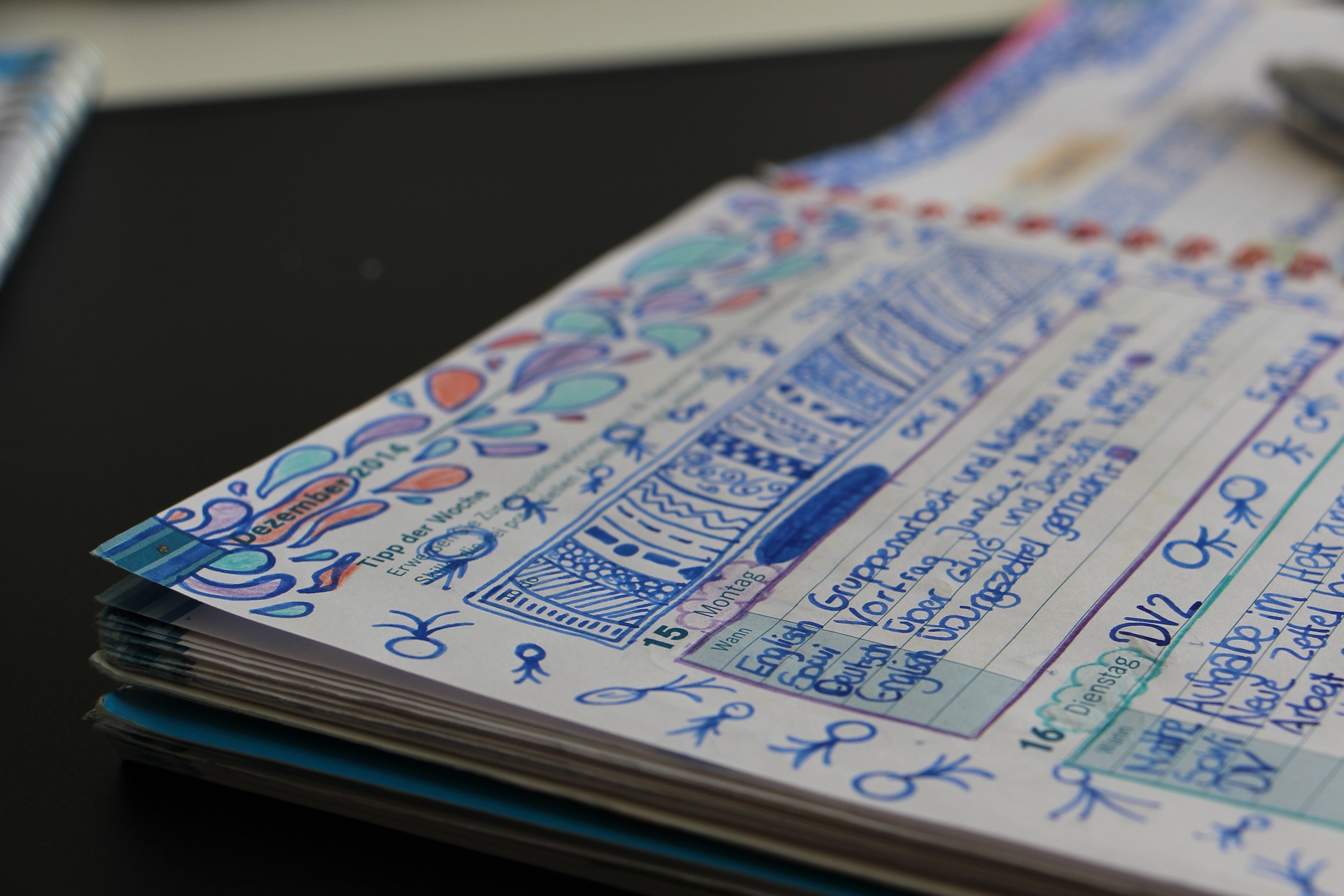A Handy Guide on Academic Sources for Research Papers
What Are Academic Sources
One of the important steps in your research is to explore the existing literature on the available information in your area of interest. Digging through the thousands of sources may be time-consuming and frustrating, but it is worth the effort. All academic papers should be based on credible academic sources.
And it’s important to know how to distinguish scholarly works from other sources.
What are academic sources for research papers? Typically, they are books and publications in reputable scholarly sources. An academic source is usually written by a qualified and experienced writer and represents careful research on a particular topic. Scholarly sources are published for the academic society, including students, lecturers, and other professionals interested in a specific field of science. Before publication, the panel of scholars and other publication authorities check the text and define its scientific value.
They are usually the following:
- Scientific journals
- Books
- Reports
- Internet resources (.org, .edu, .gov, .com)
Also, scholarly sources may include publications such as almanacs, statistical collections, biographical information, directories of companies, and organizations, as well as government agencies, scientific data, opinion poll data, etc.
In fact, you can easily define whether the source is credible and relevant. In the table below you can see the difference between a scholarly article and an article from a popular magazine.
| Type of publication | Characteristics |
| Academic article | Author: someone who has a degree in a particular field of science and is considered a scholar. Language: academic tone and style of writing, including technical terms. Purpose: highlight findings or results of an experiment for other scientists. Publisher: academic or professional organization. Bibliography: the list of used sources, usually placed at the end of the text. Other characteristics: typically contains text, graphs, tables (photographs are rare). |
| Article in a newspaper, magazine, or popular web source | Author: staff reporter, anonymous writer, journalist, etc. Language: plain text with a simple structure that can be understandable for the average reader. Purpose: inform, entertain, share a point of view, evoke emotions. Publisher: in-house publishing. Bibliography: usually not included. Other characteristics: short length, and accompanied by photographs and images. |
The Features of an Academic Article: Checklist
In the image below you can learn the basic features of an academic article. Please, note that all the points are not mandatory and may vary from one article to another. The sources recommended by your teacher may be automatically referred to as academic sources.

Where to Find Academic Sources for Research Papers
Most of the scholarly sources you can get offline in a university library. But if you are a remote student or just don’t want to go out from your cozy room, you have the following options:
- Visit the website of your college or university. Your university may give access to scientific databases and have subscriptions for online libraries. Also, each course may publish lists of recommended academic sources.
- Access the college library. Some universities have their own online library. Usually, your school library may contain many scientific works that are not available online or in other sources.
- Look through the bibliography of academic sources you already have. This may be a course book or an article that the professor has recommended you.
- Search in Google Scholar and Google Books. Lots of articles and books are available in free access. Input the keywords in the search bar and explore the existing information. Please, note that Google Books also contains non-academic books.
- Visit websites of governmental and research organizations. For example, the official website of the United Nations has a great list of statistics information, research papers, official documents, and reports. Find out what organizations may be related to your topic and find an official website.
- Explore online libraries and databases. There are plenty of websites with full or limited access to online scholarly articles, books, and reports:
– JSTOR. JSTOR is an open-source digital library that offers free and paid articles in various fields of study: arts, business, economics, history, law, medicine, social sciences, and more.
– ScienceDirect. This source has collected many publications on scientific, medical, and technical topics. Here you can find peer-reviewed open access articles and paid content.
– Openlibrary. This is an open library catalog that will help you find books in art, fantasy, biographies, science, romance, religion, and more. Some of them can be accessed digitally, while others can be borrowed in print.
– PubMed. PubMed is one of the most popular biomedical and life-science article databases. If you register as a user, NCBI will save your searches, bibliography, and results.
– DOAJ. It’s an independent source that provides free access to articles in peer-reviewed journals. It covers agriculture, history, education, law, medicine, science, and more.
– SciSeek. In this resource, you can find relevant and compelling science content. It has many categories you can choose from and interesting facts that you can use in your research paper.
– Science.gov. If you need federal science information for your research, this source will provide research and development results from authoritative federal scientific databases.
– VADLO. VALDO is a search engine for the fields of biology, bioscience, biochemistry, and more. Here you can find reports, protocols, methods, techniques, and other information for biological scientists.
Please note that some of the texts in online databases need a paid subscription. Find out whether your college provides access to a database. Contact your librarian or electronic source manager to find out about online subscriptions to the content you would like to access.
Tips for Collecting Academic Sources for Essays and Research Papers
Here are some insights on how to keep the records of your searches. Following these tips will make your research more productive. When you compile your bibliography, you won’t need to go back to searching article information and spending time double-checking it.
- Don’t pass over the information if you are not sure whether it may be useful.
- Exclude sources that repeat the same information you already have.
- Prepare three times as many resources as you think you will need.
- Paraphrase information from sources to avoid accidental plagiarism.
- Copy the text exactly as it is in the source if you are going to make a direct quote.
- Avoid abbreviation, code words, or contractions in your notes.
- Double-check your notes each time you make a new entry.
- Make sure that you have complete citation information of the source.
- Discuss your sources with your adviser. He or she can help you figure out the appropriate sources for your project and research questions.
Helpful Tools to Save and Structure Your Sources
One of the main things that will help you do the literature review is taking notes or cards. This will significantly improve the writing process and save time for creating the works cited list. While reading each source, make notes about the following points:
- Bibliographical information about the source.
- The answer the author tries to answer.
- The theories expressed in the text.
- Data and method used.
- Key findings.
- Further research and limitations of study.
- Key sources mentioned in the article to check out.
Here is a short list of services and applications that will help you save and structure sources. All of them are free to use and can be accessed on any device.
Mendeley.
Here you can keep all your sources for the research and access your library from any device. Keep notes and generate references easily in one place.
Evernote.
Evernote is a simple note-taking service that will be helpful both for your research and everyday life. Create folders, add tags, save images, and gather information with ease.
Zotero.
Zotero is a free source for researchers. You can sort items, add tags, and save search information in one place. It also has an extension for browsers and may help you collect information directly from the web.
Citationmachine.
If you need to convert your source information into an appropriate formatting style (APA, MLA, Chicago/Turabian) this source can help you. Just input the name of the source or all of the source details in the form to receive correctly formatted source information.
We hope that our article will be helpful for you. If you have any issues with finding academic articles for your research paper or just can’t write it, you can always ask EssayBulls for help and buy college research paper for affordabe price.





The best service — I received exhaustive information on the materials I need for my research))
I’m pretty glad I found the guide to tracking down the right sources for research papers, thank you, Bulls!
Now I finally know how to find sources for research paper writing! Essaybulls rocks)))))))))) Can you do my biology paper, too??
Yes, all you need to do is place an order on our website!
The topics were of great help for me! I guess these are the greatest history topics to write about
Was looking for interesting topics in history and bingo — the Bulls already have something for a history students))
Thank you guys for the amazing WWII essay topics, I finally tracked down good essay ideas!
The most accurate information on the research paper resources, thank you bulls!!
Yeess, definitely the content I’ve been looking for!
Yeah, that’s what I was actually looking for — greatest topics about World War Two)))) Can you also develop an essay about war for me?
Yes, we can write a custom essay about war for you! Place an order here – https://essaybulls.com/
Delighted to know that services such as Essaybulls are so professional and caring!